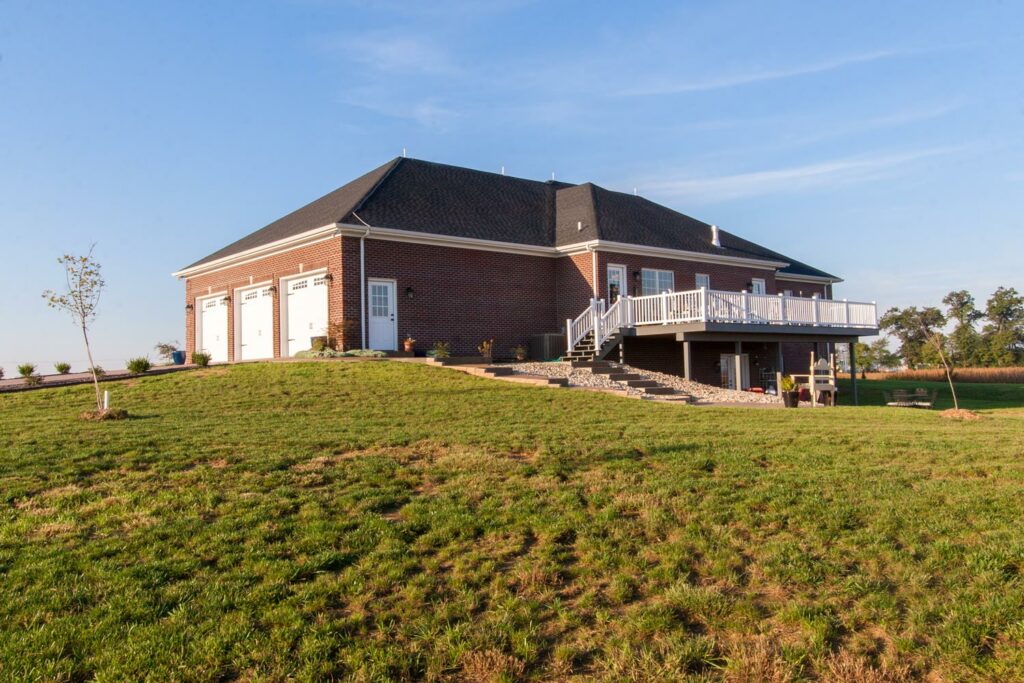Before deciding to build a home on your own land, take our advice on how to choose a home builder to help ensure you don’t overlook anything critical.
Building a new home on your own land can be one of the most satisfying experiences of your life — as long as you’re prepared. There are a lot of variables to consider, and you’ll need the help of homebuilding professionals to ensure you don’t overlook the important details before breaking ground.
Hire A Homebuilder Early in the Process
Our biggest piece of advice for anyone who wants to build on their own lot is to consult a builder before buying land. Choosing to involve your builder early on in your decision-making has the potential to save you time, and a lot of money in the long-run.
Your home builder will not only help you determine the best placement of the home, but also whether or not you should build on that particular land at all. You see, it’s easy to get swept up in the vision of your future home on an attractive piece of land, but there’s always a chance there are problems you don’t see right away – more on that a little later.
Choosing A Build-On-Your-Land Homebuilder
There’s a lot of work that goes into choosing a trustworthy homebuilder, especially when you want to build on your own land.
You need to look for a local team with visible experience in build-on-your-land projects. These teams are more likely to keep your build on budget as well as bring a critical understanding of zoning laws, restrictions, and easements. Hiring locally is especially important if you’re planning to build in a rural area, where the rules are more than likely different than in-city.
What to look for in a builder:
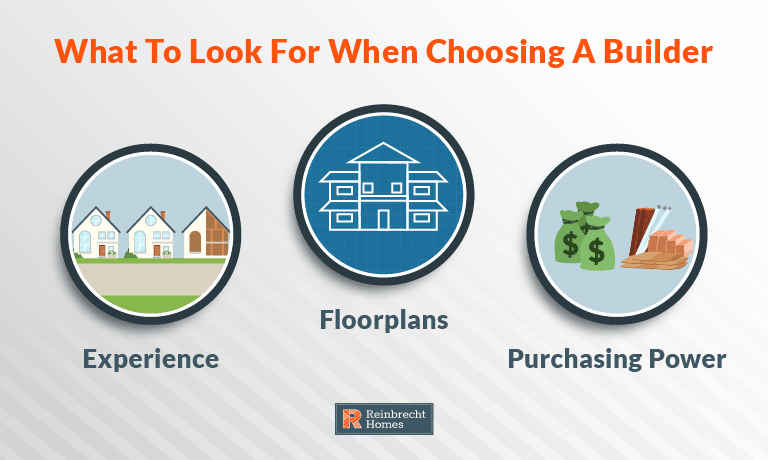
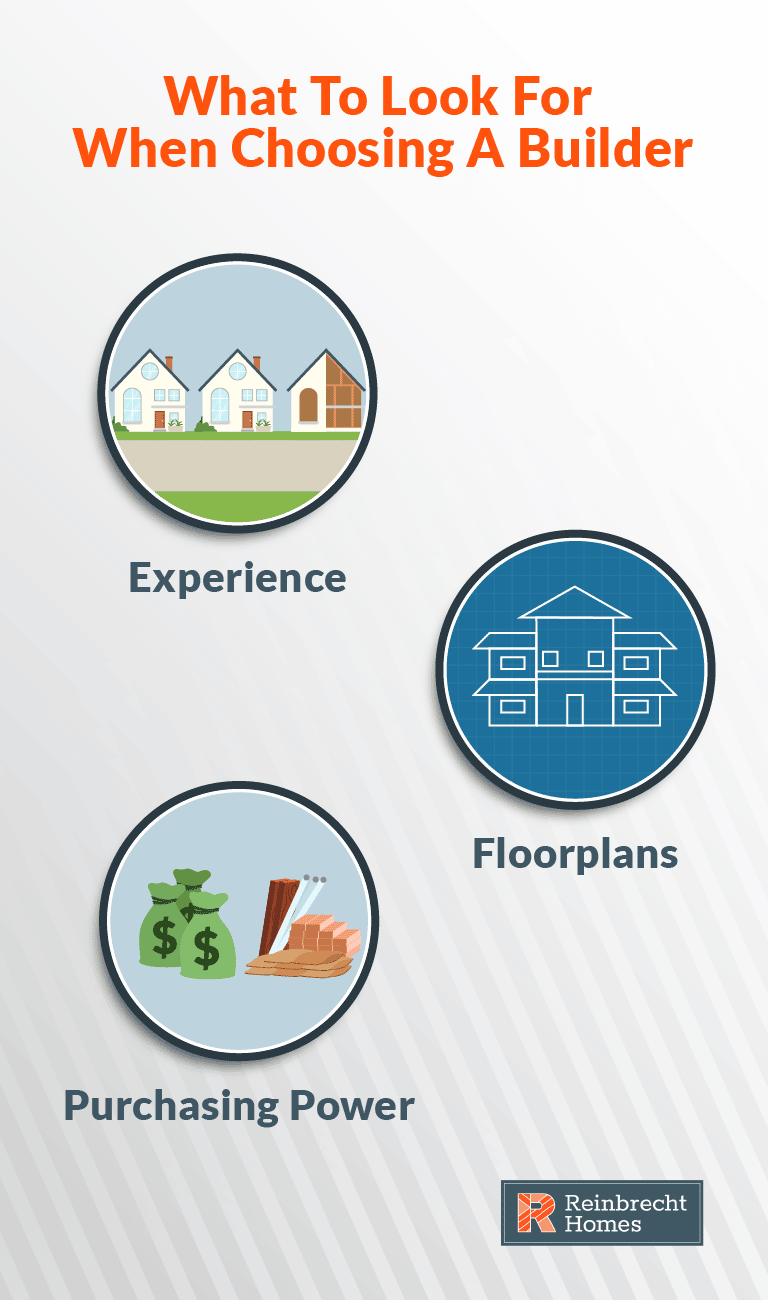
- Experience – Do they do a lot of build-on-your-own-land projects? Take time to ask for a reference or two and talk to them about their experiences.
- Floorplans – If you’re going to purchase your own land first, it might be in your best interest, financially, to work with your builder to choose a floorplan they’ve done before, or customize any of their existing designs. The important thing to look for is options – do they have them, and are they flexible in delivering what you want?
- Purchasing-Power – A homebuilder with good connections is more likely to get you a competitive price on building materials, especially if you’re using one of their floorplans.
Starting with the initial inspection of your land, your builder should be transparent and up-front about all the things that’ll have to happen BEFORE construction on your home begins. Things like removing earth, bringing dirt in, building a driveway or special foundation work should be discussed and factored into your project’s overall budget.
Knowing the costs up-front will save you money on unforeseen project additions.
Which leads us to one more point to consider before contacting a builder — knowing your budget before you call.
How Do You Estimate Your Budget When Building Your Own House?
There are many things that go into deciding a specific budget for your new home. Here are few things most home buyers need to know before a realistic budget can be set.
If you decide to use a lender for the home, they might tell you to expect to pay 15%-20% more than you initially think. As you make countless design and style decisions, things will undoubtedly be forgotten, and this padding is there to prevent you from stressing in the future. Also, you might completely change your mind about material preference half-way through the build. For example, do you now want landscaping? What about bathroom tiling?
You’ll also need to consider your monthly lifestyle preferences:
- How much do you spend on food?
- What subscriptions do you have? (Netflix, Cable, Utility bills)
- Do you have vacations planned and paid for?
It’s not always a comfortable conversation, but sharing your budget with an experienced builder up-front allows them to help you make the right choices throughout the build process, ultimately saving you money.
Choosing A Piece of Land to Build Your Home
Most of the time, you either inherit a piece of land or choose to work with a realtor to buy one. Whichever scenario, we suggest involving your home builder of choice before diving into planning a home.
So now that you know what you can spend, How do you calculate how much land you need for your house?
For many homebuyers, it typically becomes more of a preference than a calculation. For example, while you’ll need to consider property lines, you’ll most likely be thinking about how much grass you want to mow and maybe even about the potential for playsets or pool placement sometime in the future.
WHILE THE HOUSE IS BEING CONSTRUCTED, WHERE WILL YOU LIVE?
This is simultaneously a lifestyle and budget concern. Depending on the length of time it takes to build the home, your options may vary, and you’ll need a plan. Will you sell your current home and live in an apartment complex for a few months during the construction process? Will you wait to sell until you’ve moved into your new dream home? These are all situations that should be considered.
WHAT LICENSES AND PERMITS DO YOU NEED TO BUILD A HOUSE ON YOUR OWN LAND?
This completely depends on how you choose to build your home. But regardless, you could face some pretty serious penalties if you build without a permit. You might even have to take down and rebuild in a way that satisfies legal requirements.
If you build through a contractor, they will assume legal responsibility. These home builders should be very familiar with the local building codes. From paperwork to talking with the building department, they’ll ensure the home they’re building is within code.
If you’re building your own home, it’s entirely up to you to own the entirety of the job. Understand that if you build this home yourself, you’re losing legal protection that many of these home builders provide within the purchase price of the home.
From there, you’ll want to start considering groundwork items like utility and sewage hookup. It can get complicated fast, and while builders don’t usually have to involve a civil engineer when they work with clients, it can happen. So be prepared!
BUT WHY DO I NEED TO FOLLOW BUILDING CODES?
Simply put, it just builds and establishes trust. A home that has been “future-proofed” and created with the guidelines of health and safety will be a home that can be used by anyone. For example: electrical work needs to be up to snuff so that there aren’t any eventual fires. Most importantly, homes are harder to sell when they don’t meet any kind of code.
HOW DO YOU GET A CERTIFIED COPY OF A PROPOSED ZONING MAP OR ZONING TEXT AMENDMENT?
You can submit a request to your local government (either through a website or a phone call) to secure a certified copy of a local zoning map.
Unforeseen Costs When Building A New Home
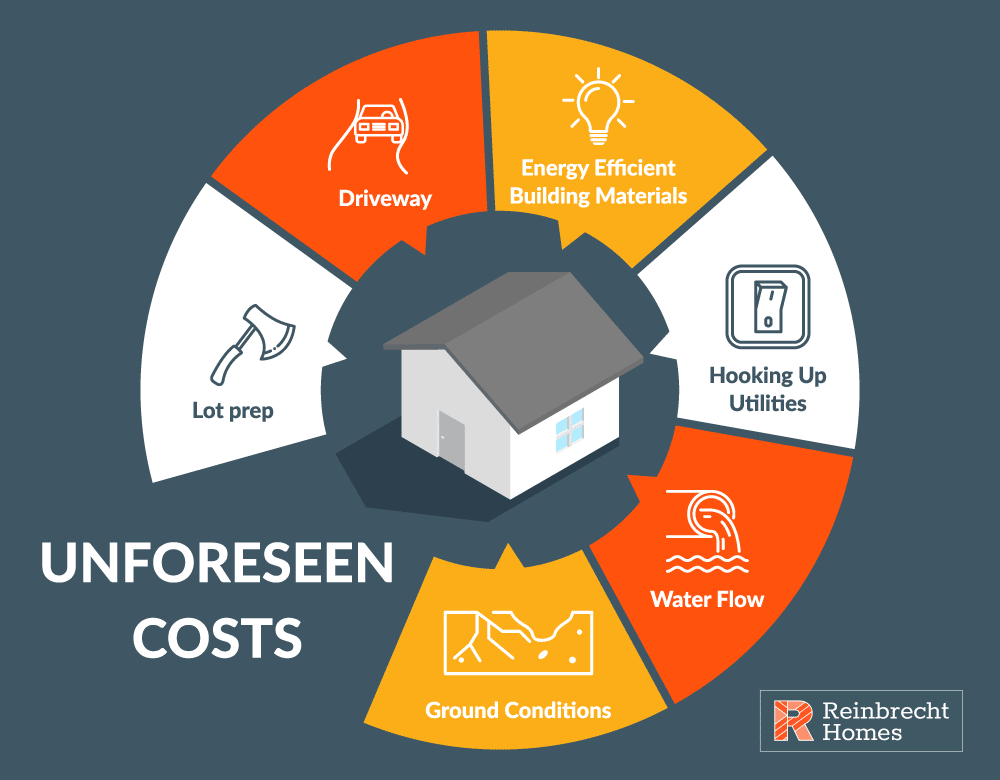
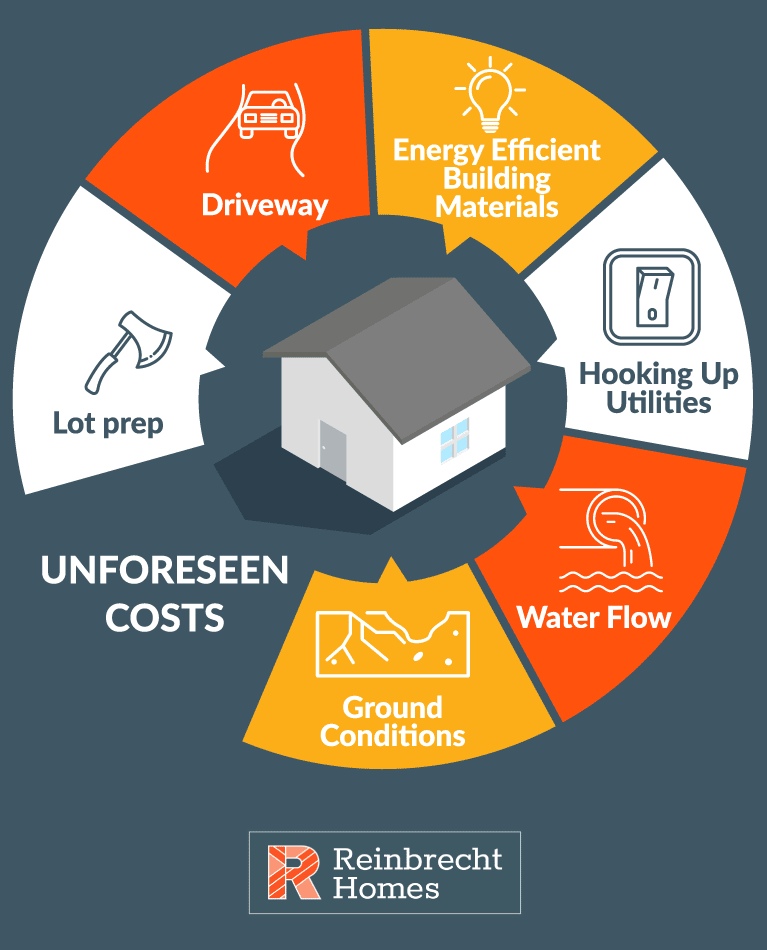
Some of those basic considerations, like utilities and sewage, are less complicated in urban areas. But regardless of where your land is, there are a few things you might not expect, like:
Cost of Lot Prep – This includes everything from necessary tree removal, to moving earth in and out of your lot.
- Cost of Driveways – You’d be surprised how often people forget to factor this in, but you’re probably going to need a driveway.
- Cost of Energy Efficient Building/Materials – Not to mention the long-term savings!
- Cost of Hooking Up Utilities – Gas, Electric, and Water will more than likely need to be routed to your new lot.
- Water Flow – Does your lot have one or more slopes? How does water move about the property?
Unseen Ground Conditions – This is one the biggest reasons to involve a builder as soon as you can because the average person might not be able to tell what’s going on below the sod. If you’re building in a rural area, can your lot support a septic system?
If you’re interested in building on your own land, but still need help choosing or preparing a lot, we can help. Reinbrecht Homes is here to offer our services and advice, and we look forward to working with people like you to build custom homes anywhere in the TriState. Download our home guide to learn about all features that come standard with a semi-custom home.

